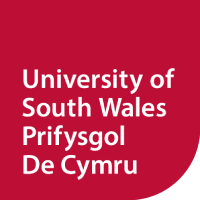About the Project
Here is an exciting opportunity to study the development of a novel multi-parameter based real-time monitoring technology, which aims to instigate a step change in the monitoring of feedstocks, digester matrices and digestates to support control strategies for sewage sludge digesters operation and digestates dewatering. This is a funded PhD, including a generous stipend and tuition fees, with a well-resourced scholarship that facilitates a successful project delivery.
The selected candidate will apply their scientific and engineering skills and ambition to develop a novel monitoring and modelling tool with applications within biotechnology industries, in particular anaerobic digestion and biorefining. This project will allow the student to develop transferable knowledge and skills in the exciting fields of bioconversion and bioenergy production particularly in the research fields of spectroscopy and multivariate parameter monitoring, modelling and control.
This Knowledge Economy Skills Scholarship (KESS) project will be held in the Wales Centre of Excellence for Anaerobic Digestion at the Sustainable Environment Research Centre based at the Faculty of Computing, Engineering and Science at the University of South Wales. KESS is a programme funded by the European Social Fund (ESF) awarded by the Welsh European Funding Office (WEFO) in the Welsh Government.
The project is backed by Dŵr Cymru Welsh Water Ltd. (DCWW), the water & waste water service provider in Wales operating 65 water treatment works and 830 WWTPs and supplying 850 million litres/day of water to 3 million customers through a network of 550 service reservoirs and 27,000 km of mains. As a large energy consumer using >450 GWh/yr, DCWW is working on plans to reduce their carbon footprint by investing in innovative energy generation including new AD plants, biomethane facilities and renewable energy generation. DCWW’s sludge strategy is to maximise resource recovery and move towards the most sustainable, efficient, environmentally beneficial, economical, and customer supported service. With the increased energy costs and concerns related to environmental protection, it is critical that wastewater treatment plants (WWTPs) become energy self-sufficient and at the same time reduce their carbon footprint and environmental impact.
In an effort to meet this goal, DCWW invested in a £70M programme of Advanced Digestion (AD) plants, which was implemented in 2011 in Afan in Port Talbot and in Cardiff. In addition, a further £23M of improvements are being planned and some already undertaken at Five Fords WWTP including Advanced AD and biomethane injection into the grid, with completion expected by 2018-19. These WWTPs are sludge digestion centres, which mean they treat not only indigenous sludge from the site but treat also imported sludge from satellite sites, raising the challenges of sludge management. In addition, DCWW still operates conventional AD sites, which also require improved real-time monitoring and control. DCWW in collaboration with the University of South Wales aims to define sludge management strategies based on sludge characteristics, digester matrices and digestate dewatering parameters. Significant improvements in plant economic and environmental performances are expected from the development and future implementation of the novel Fourier transform near infrared spectroscopy (FT-NIRS) based real-time monitoring tool and associated models to be developed as part of this project.
Eligibility of Student:
To be eligible to hold a KESS studentship, you must:
- have a home address in the Convergence area* (details below) at the time of registration.
- have the right to take up paid work in the Convergence area* on completion of the scholarship.
- be classified by the University as ‘home’ or ‘EU’ for tuition fees purposes, according to the University’s guidelines.
- satisfy University of South Wales’ admissions criteria: see below
*The Convergence area covers West Wales and the Valleys, and is made up of the following 15 local authorities: Isle of Anglesey, Gwynedd, Conwy, Denbighshire, Ceredigion, Pembrokeshire, Carmarthenshire, Swansea, Neath Port Talbot, Bridgend, Rhondda Cynon Taf, Merthyr Tydfil, Caerphilly, Blaenau Gwent and Torfaen.
Qualifications and experience:
Eligible applicants will have:
- A good first degree (2i or higher) in a relevant science or engineering discipline
- Positive attitude towards practical and applied research
- Must be able to work in a self-directed manner and have the inter-personal skills to interface with the larger research team and the industrial partner
- Good computer and numerical skills
- The ability to be self motivated
- Willingness to travel and work safely in laboratory and industrial settings
The position is available from 1st October 2016.
Funding Notes
The project is funded by the Knowledge Economy Skills Scholarship (KESS) programme and will be based in the Faculty of Computing, Engineering and Science at the University of South Wales. KESS is a programme funded by the European Social Fund (ESF) awarded by the Welsh European Funding Office (WEFO) in the Welsh Government.
The studentship will cover the fees for a 3 year full time PhD programme and pay a stipend of circa £14k p.a. There is also around £3.5k project support costs available for consumables, travel/conference attendance, minor equipment, training (including the KESS Grad School) and conference attendance.

 Continue with Facebook
Continue with Facebook

